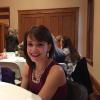March 27, 2015 - 17:39

I found the chapter from Sleeter to be particularly interesting, especially in light of our recent barometer activity where we had a pretty intense and divided discussion about the idea of learning "basics." This reading made me question even further what those basics truly are and how they may in fact differ amongst individuals and groups of people. The concept of transformative knowledge provides a place for "non-traditional" knowledge to be explored and questioned in meaningful ways. I think this relates directly to conversations about learning the basics and therefore questioning the basics. Who decides what knowledge is canonical/basic/vital? Further, I think it's deeply intriquing that engaging with transformative knowledge seeks to make learning a more action oriented experience, by making connections between students lived experiences, and their present knowledge with actions and new forms of knowledge, or new understandings of present knowledge.
This reading also made me look back upon my own learning experiences in high school and middle school with a different perspective. When I look back at those years of learning as deeply problematic because of one sided, sanitized versions of what I was reading in text books and even discussing with my peers, I recognize that even reading Sleeter's Chapter now, and experiencing these moments of growth and change within my own understanding of education, I am engaging with transformative intellectual knowledge in exciting ways. I am continually now thinking about and questioning "the nature of knowlege itself" in ways that ALLOW me to reflect on past learning experiences and move forward from those moments. I question, however, how we can go about changing or even trying to chip away at this concept of institutionalized knowledge in places such as my high school that are operating on very low budgets, and working with vastly underpaid and underappreciated educators - some of which may be the root of the problem itself. Presenting new knowledge such as this chapter from Sleeter seems to be an important step in aiming toward questioning of the basics and that institutionalized knowledge, but how can we work toward a space in which this new knowledge can be understood as part of the basic? How do curricula, standardized testing and common educational ideologies threaten teacher's willingness to engage with transformative intellectual knowledge?
